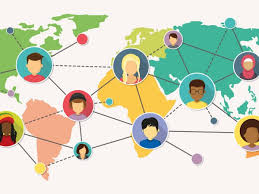Overcoming the Negative Effects of Failed Globalism and Social Integration
Ambition & Activity Detail
The 21st century began with an optimistic vision of an interconnected world where borders would shrink, cultures would converge, and prosperity would be more widely shared. Globalism and social integration were seen as twin forces that would usher in an era of cooperation and collective growth. However, the dream has not lived up to its promise for many. The backlash against globalization, rising nationalism, social fragmentation, and economic inequality has exposed the fragility of these ideals. While the intent behind globalism and integration was noble, their execution has often fallen short, exacerbating divisions rather than healing them.
This article explores the causes and consequences of failed globalism and flawed social integration, then provides a path forward through renewed local empowerment, sustainable development, cultural pluralism, inclusive governance, and a recognition of the role of compatibility in determining the success of integration.
1. Understanding Failed Globalism: Origins and Impact
Globalism refers to the process by which businesses, technologies, ideas, and cultures become integrated across borders. Initially, it promised mutual economic growth, cultural exchange, and peace. However, the model of globalism that emerged favoured capital over labour, corporations over communities, and profit over people.
The key reasons globalism failed to meet expectations include:
>>> Economic Disparities: While some regions thrived, many were left behind. Wealth became concentrated in urban centers and among elites, leaving rural and working-class populations disillusioned.
>>> Labour Exploitation: Manufacturing moved to countries with lax labour laws, exploiting workers and undermining labour movements globally.
>>> Cultural Erosion: The spread of Western norms often came at the expense of local cultures, fostering resentment and cultural alienation.
>>> Political Disempowerment: Decisions impacting millions were increasingly made by international institutions and corporations, far removed from democratic accountability.
The fallout has been dramatic: Brexit, the rise of populist leaders, trade wars, and a marked increase in anti-immigrant sentiment. Communities that once welcomed diversity and openness are now grappling with a sense of loss and betrayal.
2. The Breakdown of Social Integration
Social integration—the process of uniting diverse populations into a cohesive society—has similarly faltered. In theory, integration encourages mutual respect and shared values. In practice, many societies have struggled to find the balance between unity and diversity.
Key failures include:
>>> Assimilation Over Inclusion: Policies often required minority groups to assimilate, relinquishing their identities instead of fostering a pluralistic society.
>>> Ghettoisation and Segregation: In many cities, immigrant and minority populations live in marginalised neighbourhoods, isolated from mainstream society.
>>> Racism and Xenophobia: Systemic discrimination has hindered true social inclusion, fuelling tensions and unrest.
>>> Lack of Dialogue: There has been insufficient space for open conversations about identity, history, and reconciliation.
Furthermore, a major and often overlooked factor is compatibility. Integration assumes a level of cultural, ethical, and ideological compatibility that may not always exist. When values, lifestyles, and worldviews clash fundamentally, forcing cohesion can cause more harm than good. In such cases, it may be more humane and sustainable to embrace the differences and allow distinct communities to thrive independently—living apart with mutual respect, rather than being shoehorned together in frictional cohabitation.
These challenges have contributed to rising polarisation, cultural clashes, and the radicalisation of marginalised youth.
3. Reclaiming Localism: A Grassroots Path Forward
The antidote to failed globalism may lie in a renewed focus on localism—an approach that prioritises local economies, cultures, and governance. Instead of abandoning global cooperation, we must root it in local empowerment.
Strategies for successful localism:
>>> Strengthen Local Economies: Support small businesses, cooperatives, and local agriculture. This builds resilience and redistributes wealth.
>>> Empower Community Governance: Decentralize decision-making to enable communities to shape their own futures.
>>> Preserve Cultural Heritage: Celebrate and protect local languages, traditions, and art forms as vital aspects of identity.
>>> Education Reform: Implement curricula that reflect local history and values while promoting global awareness.
Localism doesn't reject globalisation—it rebalances it. By grounding global engagement in strong, self-determined communities, we create a more equitable and sustainable model.
4. Rethinking Economic Development: Beyond GDP
Economic policies must evolve to address the imbalances created by globalisation. A new development paradigm is needed—one that prioritises well-being, environmental stewardship, and equity.
Key principles for sustainable development:
>>> Inclusive Growth: Focus on policies that reduce inequality and provide opportunities for all.
>>> Green Economy: Transition to renewable energy, sustainable agriculture, and circular economic models.
>>> Universal Basic Services: Ensure access to healthcare, education, housing, and clean water.
>>> Worker Rights and Protections: Strengthen labour laws and support collective bargaining.
True development is about more than economic output—it's about creating societies where everyone can thrive.
5. Embracing Cultural Pluralism
To overcome the negative effects of failed social integration, societies must move from token diversity to genuine pluralism—where differences are respected, and inclusion is active and intentional.
Steps to foster pluralism:
>>> Representation Matters: Ensure diverse voices are present in media, politics, and education.
>>> Intercultural Dialogue: Promote conversations between communities to build empathy and understanding.
>>> Civic Participation: Encourage inclusive political engagement, especially from underrepresented groups.
>>> Address Historical Injustices: Acknowledge and redress past harms through truth commissions, reparations, and public memory projects.
Importantly, pluralism must also recognise the limits of integration. When communities or cultures are fundamentally incompatible in their core values or ways of life, it is healthier to encourage respectful coexistence at a distance rather than enforced proximity. Diversity can be celebrated without forced homogenization.
Pluralism recognises that unity is not uniformity. A society that embraces complexity is more resilient and innovative.
6. Building Inclusive Governance
A significant driver of disillusionment with globalism is the sense of powerlessness it breeds. Inclusive governance can reverse this trend by restoring public trust and participation.
Elements of inclusive governance:
>>> Participatory Democracy: Use tools like citizen assemblies, participatory budgeting, and referenda to involve people in decisions.
>>> Transparency and Accountability: Hold institutions accountable through robust checks, open data, and whistleblower protections.
>>> Global Institutions with Local Roots: Reform international bodies to reflect the needs and voices of all nations and peoples.
>>> Technology for Empowerment: Use digital platforms to facilitate civic engagement and government responsiveness.
When people feel heard and represented, they are more likely to support collective action.
7. Case Studies: Successful Models of Integration and Resilience
>>> Kerala, India: Combines high human development with strong local governance and cultural pride. Emphasis on public education and healthcare has created a resilient society.
>>> Barcelona, Spain: A leader in municipalism, with participatory budgeting and cooperative economies revitalizing local democracy.
>>> Canada's Multiculturalism: Though not without challenges, Canada's official multicultural policy promotes pluralism and integration through inclusive policies and anti-racist frameworks.
>>> Rwanda’s Post-Genocide Reconciliation: Grassroots dialogue and community justice mechanisms have helped rebuild trust and national unity.
These examples demonstrate that with the right vision and commitment, integration and global cooperation can be deeply beneficial.
8. The Role of Youth and Civil Society
Young people and civil society organisations are at the forefront of reimagining globalisation and integration. Their activism, creativity, and resilience are essential for building a more inclusive world.
Empowering the next generation:
>>> Education for Global Citizenship: Teach skills for empathy, critical thinking, and intercultural collaboration.
>>> Youth-Led Initiatives: Fund and support projects led by young people addressing social justice, climate change, and community development.
>>> Digital Inclusion: Ensure equitable access to technology and digital literacy training.
>>> Safe Spaces for Expression: Protect the rights of youth to protest, create, and shape public discourse.
The future will be shaped by those who inherit it. Investing in youth is investing in long-term peace and progress.
Conclusion: From Disillusionment to Renewal
The failures of globalism and social integration are not reasons to abandon these concepts but calls to do them better. The path forward demands humility, innovation, and a return to foundational values: dignity, justice, and shared humanity.
By combining local empowerment with global solidarity, economic reform with environmental care, and cultural pride with inclusive policies, we can turn past failures into future strengths. A new era is possible—one where globalism is fair, and integration is genuine.
Crucially, we must also recognise that not all differences can or should be reconciled. Where incompatibilities exist, we should have the courage to acknowledge them and allow communities to live apart peacefully and respectfully. Forced integration in the face of irreconcilable values only deepens division.
The task is enormous, but the potential is greater. If we listen, adapt, and act together, we can overcome the shadows of the past and build a brighter, more united—and more respectfully distinct—world.
Supporting Information
Media
Location & Impact Details
Vote To Help Prioritise Activity Listing
You must be logged in to rate.
Contact Details
There are no reviews yet.



